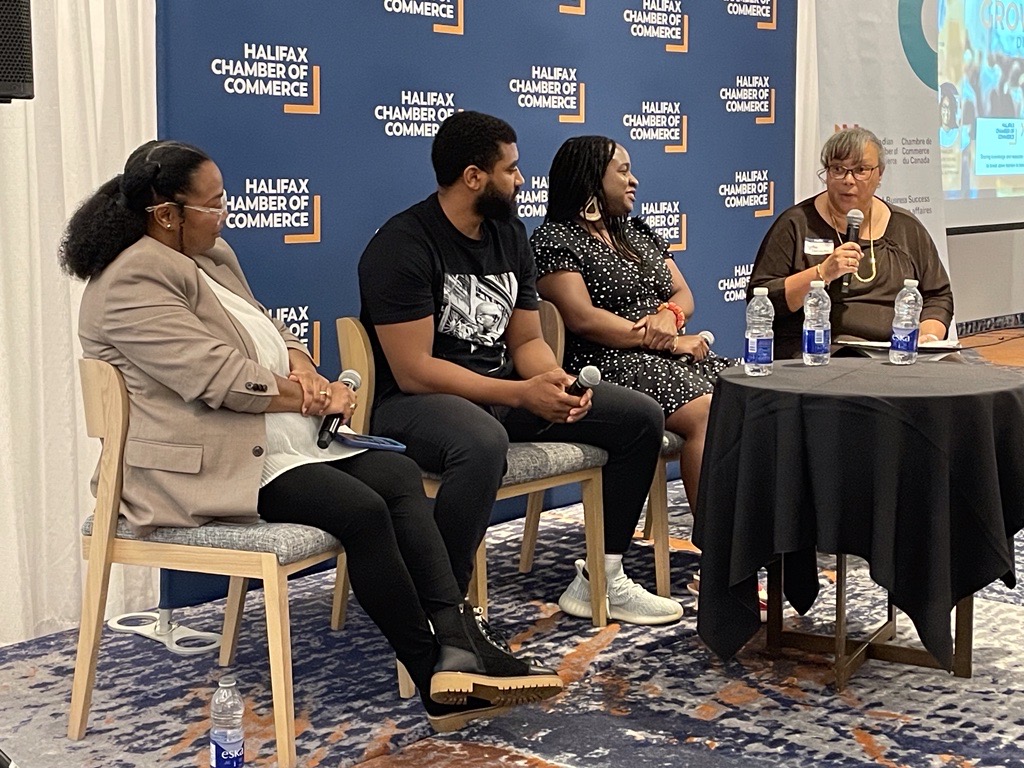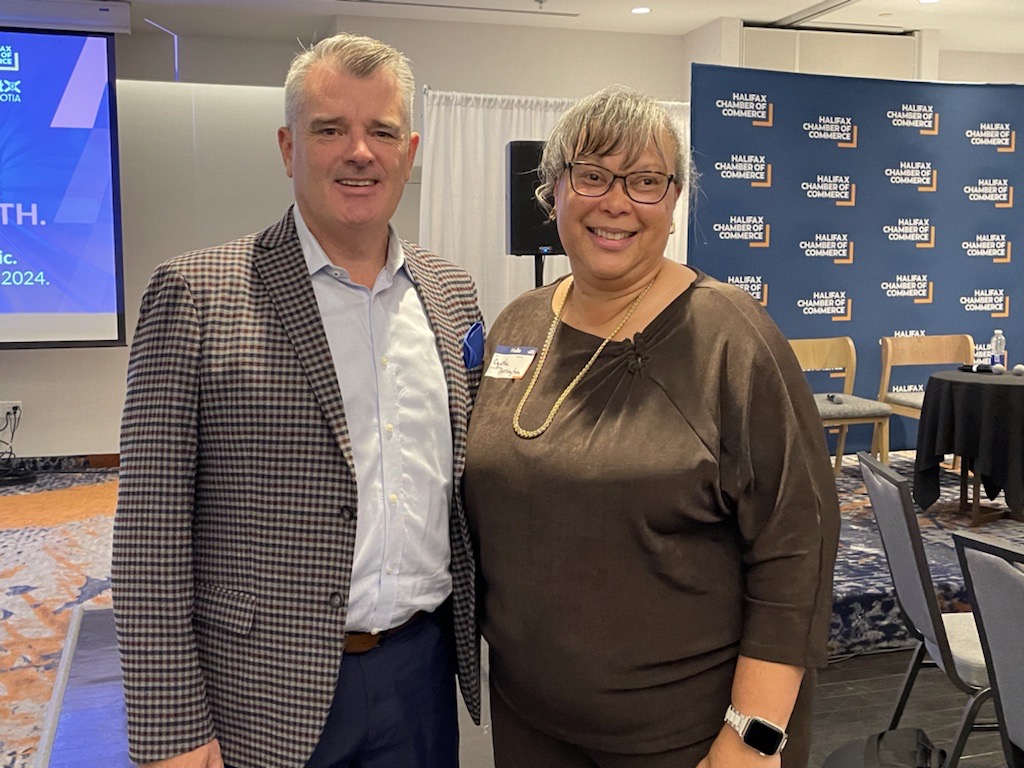Blog /
What We Heard: “Celebrating Nova Scotia’s Black Economy” Inclusive Growth Dialogue
What We Heard: “Celebrating Nova Scotia’s Black Economy” Inclusive Growth Dialogue
Through our Inclusive Growth initiative, we aim to mobilize the knowledge and resources of the Canadian Chamber Network to be a strong agent for change. In collaboration with the Canadian Chamber Network, we co-hosted five Inclusive Growth Dialogues in 2023.

At the Canadian Chamber of Commerce, we believe that diversity, equity and inclusion (DEI) are essential to fairness of opportunity, competitiveness of business, and our nation’s economic growth and prosperity. Our Inclusive Growth initiative advocates for a business environment that works for everyone, paying particular attention to groups of the population that historically and presently face barriers, preventing them from fully participating and thriving in our economy.
Through our Inclusive Growth initiative, we aim to mobilize the knowledge and resources of the Canadian Chamber Network to be a strong agent for change. In collaboration with the Canadian Chamber Network, we co-hosted five Inclusive Growth Dialogues in 2023. These dialogues provide an opportunity to identify challenges and opportunities relating to the role chambers can play in advancing economic reconciliation and fostering a more inclusive business community.
On September 28, in partnership with the Halifax Chamber of Commerce, we held the “Celebrating Nova Scotia’s Black Economy” Inclusive Growth Dialogue at the Atlantica Hotel. The Dialogue kicked off with a panel discussion featuring Tiffani Young, CEO & Founder of Natural Butter Bar, Nevell Provo, CEO & Founder of Smooth Meal Prep, and Temi Ologbenla, Founder of Temi Bakes. Panellists shared on their entrepreneurial journeys and discussed the challenges facing Black entrepreneurs, including limited access to capital and financing, lack of professional networks, and few role models and mentors. Afterward, attendees heard from Alfred Burgesson, CEO of Tribe Network.
Here are some of the highlights from this important Dialogue.

Addressing Barriers to Success
Within the existing ecosystem, minority-owned businesses, including Black and 2SLGBTQI+ businesses, often lack the support necessary to succeed and to scale. Providing tailored education, training and resources designed for growth and expansion, addressing systemic barriers to accessing capital, and providing opportunities for networking and mentorship are all critical for long-term success.

Building Bridges with Black-Led Businesses
There are many opportunities for chambers to come alongside Black entrepreneurs and businesses, beginning with establishing a clear DEI plan that outlines their commitment to inclusivity — but it is essential that support extends beyond seasonal activations, such as Black History Month. Consistency is key.
Chambers can build bridges with Black-led businesses by:
- Actively participating in events organized by Black-led businesses and creating opportunities for Black and other racialized business owners to participate in events.
- Ensuring that opportunities for collaboration and support are well advertised using a variety of channels, including social media, newsletters, and community networks.
- Being intentional about expanding their networks to include Black-led businesses and encouraging others to do the same.

Increasing Access to Mentorship and Coaching
Chambers can help increase access to coaching for Black entrepreneurs by engaging with government and advocating for policies that support the implementation of mentoring programs and by providing financial resources, like funds and grants, to help expand the reach and accessibility of these programs. Mentoring programs should have a simplified, user-friendly application process and be promoted on various channels to better reach underrepresented communities.
Additionally, chambers should help establish spaces where experienced Black entrepreneurs are encouraged to be role models and can share their knowledge with up-and-coming entrepreneurs.


Getting Communities Involved
Local communities can help level the playing field and better support Black entrepreneurs by giving them a seat at the table where decisions are made and ensuring their voices are heard. Local communities can help dismantle barriers that hinder the progress of Black entrepreneurs by addressing education disparities through accessible and affordable workshops and training programs that go beyond startup basics, advocating for initiatives that provide increased access to capital for underrepresented entrepreneurs, initiating conversations about race and inclusion, actively seeking out and supporting Black entrepreneurs, and amplifying the voices and groups that already do so.

Using Data to Address Disparities
It’s essential to address implicit biases that may exist in the entrepreneurial ecosystem. Data can reveal disparities and inequalities in access to resources, funding and opportunities for Black entrepreneurs. Decision-makers can use this information to prioritize efforts to address these disparities and promote equitable access to capital.
A What We Heard blog will be produced for the rest of the five Inclusive Growth Dialogues, so be sure to come back for those insights!
Related News

Employee Education is a Critical Defence Against Cyber Attacks

How Your Organization Can Quantify and Reduce Your Cyber Risk




